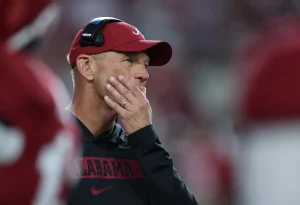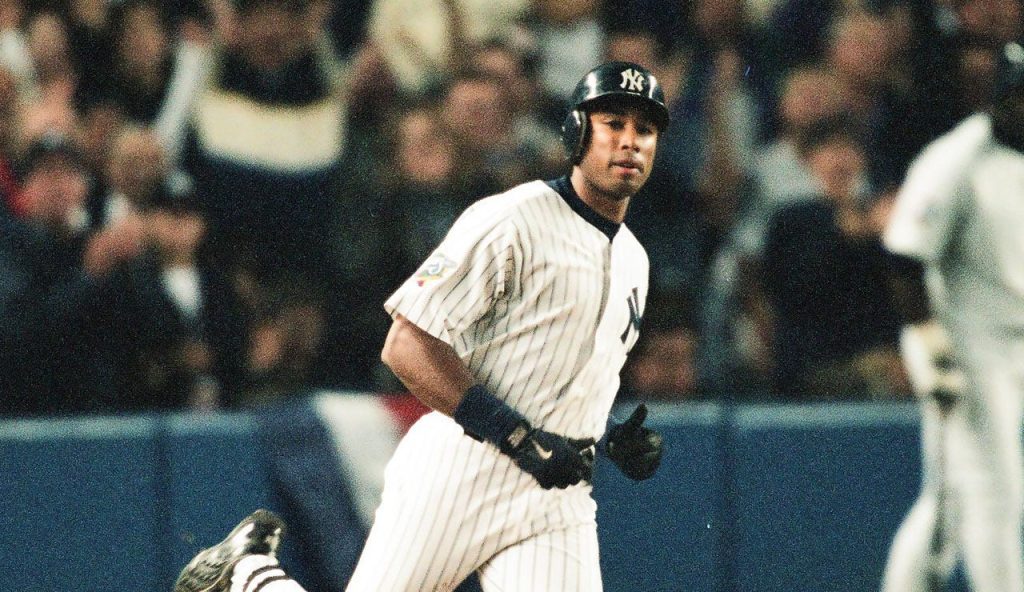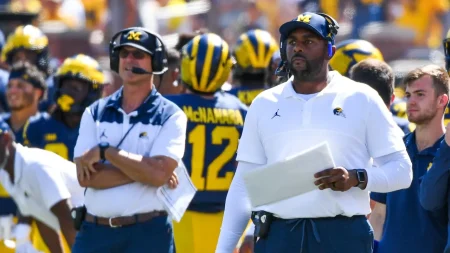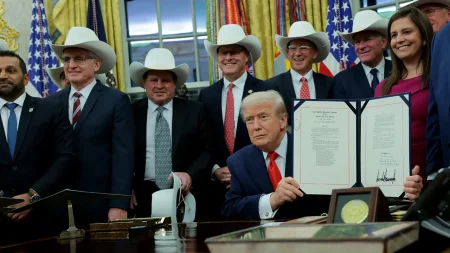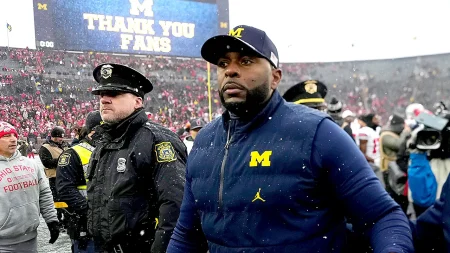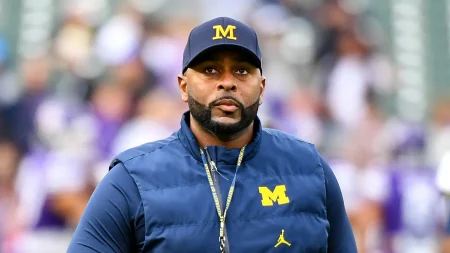Yankees on the Brink: Bernie Williams Offers Hope Amid ALDS Struggle
As the New York Yankees face elimination in the American League Division Series, down 2-0 to the Toronto Blue Jays, Yankees legend Bernie Williams shares wisdom from his own playoff experience. Having been in similar dire straits during the 2001 ALDS when his team came back from a 0-2 deficit against Oakland, Williams offers unique perspective on the team’s current predicament. The first two games in Toronto saw the Blue Jays dominate the Yankees, creating a sense of panic among the Bronx faithful. Williams acknowledges the humiliation factor, telling Fox News Digital, “One thing is losing, but they’re being clobbered in two games, especially this time of the year, you know, it’s a little embarrassing.” Yet within this acknowledgment lies his message of resilience and mindfulness for the current roster.
Williams advocates for a balanced psychological approach to handling playoff adversity. He suggests players should “forget about the downtimes, but at the same time, you want to keep them in your mind, because you don’t want to repeat them.” This duality of thought creates space for both learning and moving forward. The five-time All-Star emphasizes the importance of present-moment awareness, advising players to “take it literally one moment at a time, one at-bat at a time, one pitch at a time.” This mindfulness practice, while seemingly cliché, represents Williams’ belief in focusing on the process rather than outcomes. “If it doesn’t happen, you can always look in the mirror and say, ‘You know what, I did everything I could,'” he reflects, capturing the athlete’s eternal struggle with factors beyond their control.
The current Yankees management structure differs significantly from Williams’ era, a fact he readily acknowledges when discussing manager Aaron Boone’s position. Unlike Joe Torre, who had substantial input on lineups and team composition, Williams observes that Boone operates in an analytics-heavy environment where “mathematicians [are] checking their analytics and crafting some sort of a lineup.” The organizational approach has transformed as well, with the absence of George Steinbrenner’s demanding, action-oriented ownership style. “The front office in this particular reiteration of the club, it’s a little bit more slow to make those changes,” Williams notes, suggesting today’s Yankees leadership shows more patience—perhaps too much—compared to the rapid responses of the Steinbrenner era.
Williams perceives fundamental differences in how baseball is played today compared to his championship years in the 1990s. He points to a decline in emphasis on “the little things in the game” like “moving runners over, bunting, playing strong defense,” alongside the advantage his teams had with Mariano Rivera, “probably the best closer in the game.” The dynasty Yankees created a template that opposing teams have since adopted, creating a competitive landscape where “we’re basically fighting ourselves, all these teams, because they have used the same process to craft their teams.” This observation highlights how the Yankees’ historical dominance has inadvertently created a more challenging environment for today’s team, as their blueprint has been widely replicated throughout baseball.
The success of Williams’ Yankees teams—winners of four World Series championships in five years—established expectations that continue to burden the current roster. “I think that they have the amount of expectations that are expected from that team right now, because those guys in the ’90s did it, why can’t you guys do it?” Williams empathizes. This weight of history creates additional pressure beyond the already intense New York spotlight. The former center fielder acknowledges that his dynasty “spoiled” the Yankees fan base, creating unrealistic expectations that winning championships should come easily. Today’s players carry “that burden” of living up to legendary predecessors while competing in a league that has studied and replicated the Yankees’ formula for success.
Despite the daunting odds facing the 2025 Yankees, Williams maintains optimism about their potential to turn the series around. He believes the team still has “a great opportunity” if they can “just get that little spark of luck.” His experience with comeback victories—like the 2001 ALDS against Oakland—informs his perspective that momentum can shift dramatically in playoff baseball. “One game in this series can turn the tide,” Williams insists, hoping Game 3 will mark that turning point. This balanced view—acknowledging both the serious challenges and genuine possibilities ahead—reflects Williams’ nuanced understanding of baseball’s unpredictability. As the Yankees prepare for their do-or-die game, Williams’ voice from the past offers both caution and encouragement: respect the difficulty of the moment while embracing its opportunity for greatness.
